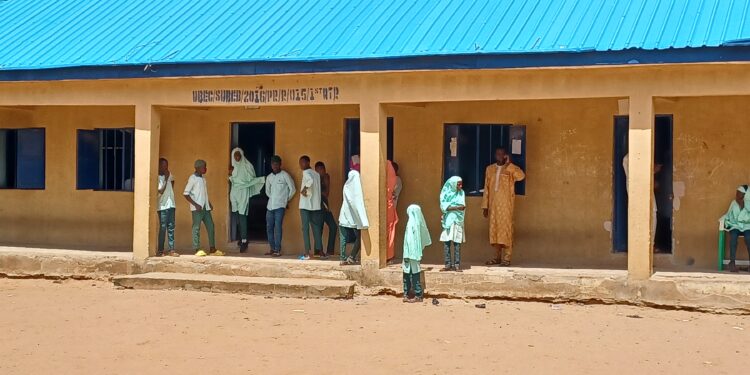LAGOS, Nigeria – In the wake of persistent armed attacks on educational institutions, including the recent abduction of 200 students in Kaduna State, stakeholders across the education sector have intensified their calls for the Federal Government to prioritize the safety and security of schools nationwide.
During a media roundtable held in Lagos, stakeholders highlighted the collective responsibility of all individuals connected to school-going children, emphasizing the need for government accountability in safeguarding educational environments. The event, organized by the Women Advocates Research and Documentation Centre (WARDC) in conjunction with the United Nations Democracy Fund, brought together various voices advocating for concrete actions beyond mere rhetoric.
Dr. Abiola Akiyode-Afolabi, the founding director of WARDC, underscored the urgency of establishing a comprehensive legal framework to ensure maximum security standards for schools across the country. She proposed proactive measures, such as deploying specialized security personnel, dubbed ‘Edu-guards,’ to prevent breaches and protect students and educators.
“The interconnectedness of everyone with school-going children means that we all share a collective responsibility to demand government accountability in safeguarding our schools,” Akiyode-Afolabi stated. Reflecting on past incidents like the Chibok schoolgirls’ abduction over 10 years ago, she emphasized the need for the Ministry of Education to provide financial support and legislative backing to enhance school security.
While the Federal Government’s Safe School Initiative was acknowledged as a step in the right direction, participants expressed concerns about the ongoing vulnerability of schools, as demonstrated by attacks in Yobe, Katsina, Zamfara, and even parts of the southwest and east. The roundtable discussions highlighted disparities in security measures between urban and rural schools, calling for equitable resource distribution and increased vigilance to protect all students, regardless of their location.
The Education in Emergency Working Group, which has conducted extensive research to assess school safety nationwide, presented findings that reinforced the need for concerted efforts from the government, civil society, and the media. The group’s research underscored the multifaceted nature of the security challenges facing Nigerian schools, from insurgencies in the north to local threats like the activities of the Shila boys in Adamawa.
Stakeholders at the event also called attention to Nigeria’s commitment to the Safe Schools Declaration, urging the government to allocate adequate funds and declare a state of emergency to address the pressing security challenges. “It’s time for concrete action,” said one participant. “We need to move beyond words and ensure that our schools are safe havens for learning.”
The roundtable concluded with a resounding call for the Federal Government to elevate school security as a top priority. As one advocate put it, “Protecting the lives and futures of our students and educators is not just a necessity; it is our moral obligation.”
In light of these developments, the spotlight remains firmly on the government to take decisive and urgent action to secure the educational environments across Nigeria, ensuring that students can learn without fear and educators can teach in peace.

